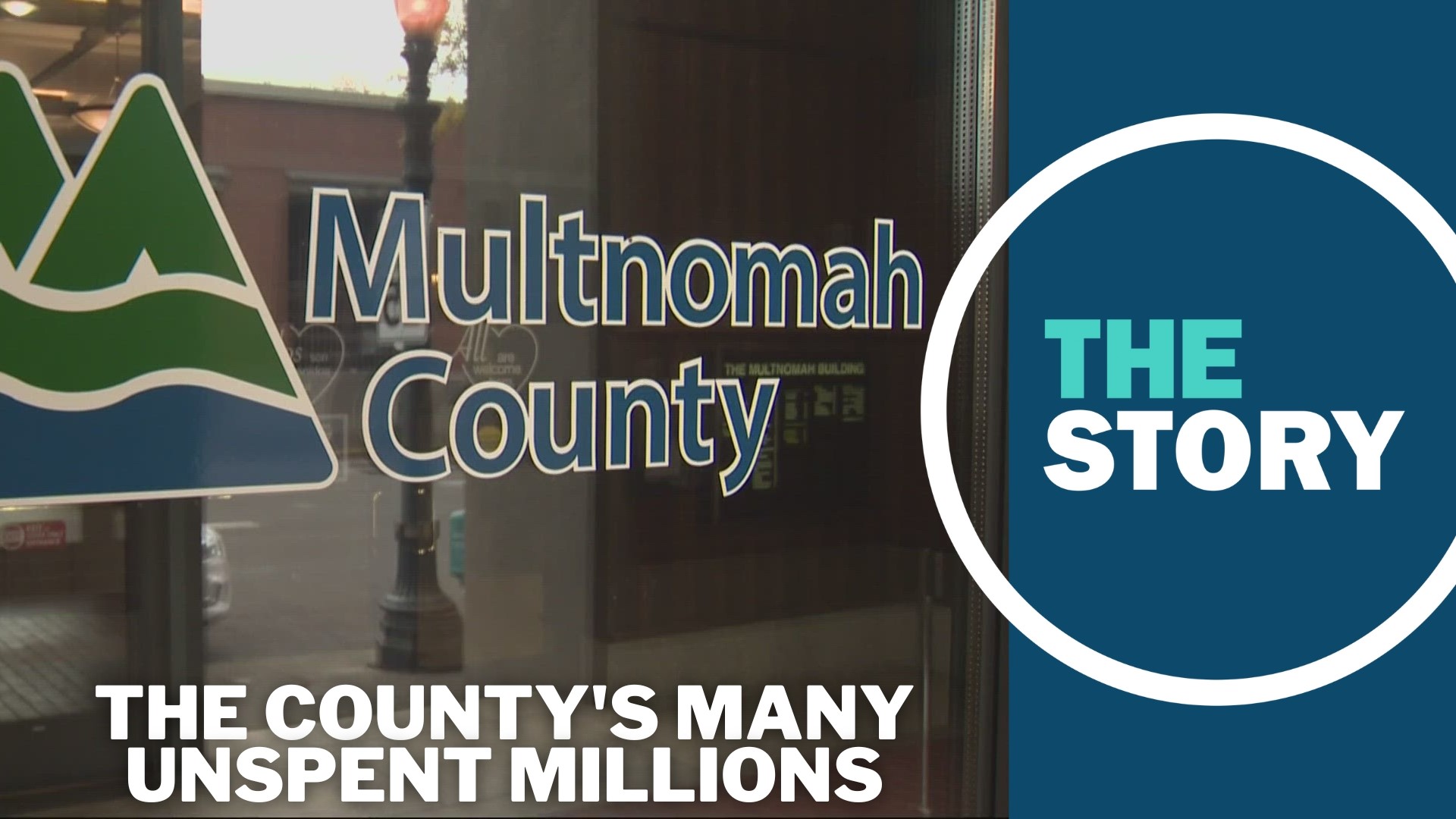PORTLAND, Ore. — Multnomah County continues to sit on millions of unspent dollars intended to support homeless services, an issue that first came to prominence late last year. At that time, the county had collected about $47 million more than expected from the voter-approved Supportive Housing Services Tax.
By May, the county still had not spent the excess — an issue met with rising frustration as the summer began, with local service providers and shelters struggling to make ends meet and wanting to know why the money is not being put to use.
Nowhere is that frustration more apparent than at Helping Hands Reentry Outreach Centers, the nonprofit that operates Bybee Lakes Hope Center out of the erstwhile Wapato Jail. The organization announced this week that it would temporarily suspend new referrals for shelter due to "overwhelming demand" for services and "a lack of financial support."
Founder and president Alan Evans has made no secret of his desire for government backing, which has not been forthcoming. Thus far, the enterprise has been primarily privately funded by outside donations and by residents' fees.
"It's extremely frustrating to know that at the end of the year there's so many millions of dollars left over, and we're saying 'We want to help, we're on your team, but we need your help to provide that service,' and they would rather end the year with money not spent then give us the opportunity to do our job," Evans told KGW.
Historically, county officials have indicated that they avoided Bybee Lakes because they prefer to fund low-barrier shelters and transitional housing options. Bybee Lakes stands out for its list of rules: Prospective residents must be referred by one of the organization's partners, they must be clean and sober while living in the facility, and they need to be working and paying $250 a month for their space after about 60 days. It does have a separate emergency shelter that promises low-barrier services.
As of the organization's statement this week, Bybee Lakes reported having 175 beds in use and capacity for more than 300 residents. It finalized an expansion to add much of its current unused capacity back in March.
Multnomah County Chair Jessica Vega Pederson has called the county's underspending "simply unacceptable" and months ago pledged to make changes moving forward. But it wasn't until late last week that county commissioners finally held a work session on how to spend the money.
"In a commitment to transparency, I'm looking forward to engaging in public discussion as a board around the investments that we're making to address the crisis on our streets," Vega Pederson said.
As it turns out, the county has even more unspent funding than originally reported. In addition to the $47 million in additional taxpayer contributions, a county spokesperson said that there is $58 million in unspent funding from this fiscal year. So far, $40 million has been plugged into next year's budget. That means that the county still has about $65 million available to spend on addressing homelessness.
The county's newest commissioner, Julia Brim Edwards, who represents portions of east and southeast Portland, had her own thoughts for how the money should be used.
"First, 500 new shelter beds. We have more than 6,000 individuals living on the streets without access to basic services, so the funds I've put on the table is a $7 million investment in 500 new shelter beds," Brim Edwards said. "And then, in addition, some resources to preserve some existing beds out of Bybee Lakes. In addition, when the city of Portland implements its new camping restrictions, there will be a need for people to have services during the day so I also included some funds for day centers."
Brim Edwards was far from the only commissioner to mention Bybee Lakes, suggesting that there's political will now to include the facility in Multnomah County's list of supported providers — at least to some extent.
Commissioner Lori Stegmann highlighted the need to expand services in east Multnomah County, again pointing to the coming enforcement of Portland's camping ordinance and suggesting that it would push more homeless people east into underserved areas. Commissioner Sharon Meieran signaled that she supported many of the same ideas.
"While the media tends to focus on our differences, I see far more agreement on what we want to do — this board and our community," said Stegmann in reply. "So I would just urge us to focus on what we're motivated to do, and all of us care deeply about this issue, and that we debate ideas and not each other."
The commissioners also heard from dozens of people who showed up last week to testify, sharing what they think the money should be used for:
"We hope you'll consider using the unanticipated revenue to purchase a building that could be used for transitional supportive housing."
"It would be very fortuitous if we were to invest those funds partially into temporary hotel, motel arrangements."
"We need these unspent dollars and new dollars in our community, and we need funding for eviction defense."
Multnomah County's commissioners intend to meet again this month before finalizing a plan for all of those unspent dollars.
The Story airs at 6:30 p.m. every weekday on KGW. Got a question or comment for the team? Shoot an email to thestory@kgw.com or call and leave a voicemail at 503-226-5090.

